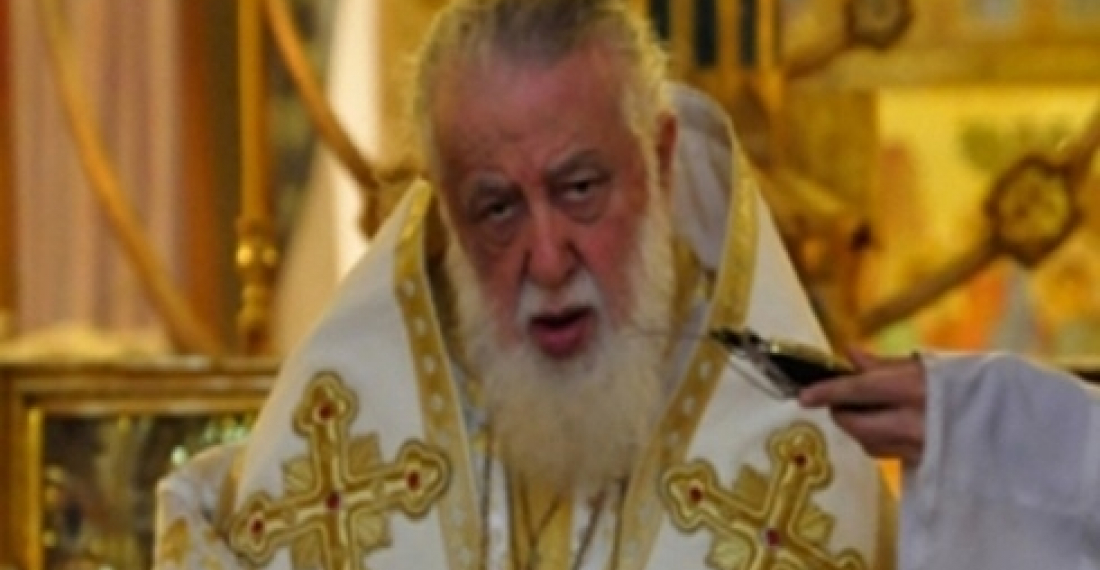This commentary was prepared by Joseph Alexander Smith
In Georgia, where over 80% of the population belong to the Orthodox Church, Church bells rang out at midnight services to celebrate the Feast of the Resurrection. Georgians customarily observe Easter by boiling eggs and dying them red. The faithful will often hold picnics by the graves of deceased relatives in the week following Easter, where they will roll the dyed eggs on the gravesite and make toasts to the departed.
The spiritual head of the Georgian Orthodox Church, Patriarch-Catholicos Ilia II broke with recent tradition and celebrated the Easter services in the ancient capital of Mtskheta, rather than the main Holy Trinity Cathedral in Tbilisi. Last year, Patriarch Ilia bestowed the title of ‘Holy City’ on Mtskheta in recognition of its importance to Georgian Christians.
St Nino baptized King Mirian III and his wife Queen Nana in Mtskheta in 332, making Georgia the second state in the world after Armenia to officially accept Christianity. The national Church of Armenia, the Armenian Apostolic Church, celebrated Easter on April 5 along with Western Churches.
As in many other Orthodox countries, Georgians awaited the arrival of the ‘Holy Flame’ from Jerusalem. According to Orthodox tradition, a blue flame spontaneously forms on the tomb of Christ around midday on the Saturday before Orthodox Easter every year.
After being checked for matches or lighters by Israeli police, the Greek Orthodox Patriarch of Jerusalem enters the small chapelbuilt around the Tomb with a bunch of 33 candles. After a few minutes he emerges carrying the flame – which some believe miraculously doesn’t burn them – which is then transported by special flights to Orthodox countries and ultimately to every parish church.
Easter is also being celebrated by ethnic Russians in both Azerbaijan and Armenia. There are two Orthodox Churches in the Azerbaijani capital Baku serving the city’s Russian community, which dates back to the period of imperial expansion in the early 19th century.
There is also a small Russian Orthodox Church in Yerevan, as well as a military chapel at the Russian 102nd Military Base in Gyumri, where tensions were raised this year after the murder of a local family by a serving soldier on the base. There are also as many as 3,500 Russian military personnel serving in Abkhazia, and up to 4,000 in South Ossetia.
South Ossetia’s president, Leonid Tibilov offered his congratulations to Orthodoc in South Ossetia, saying: “Not by chance in the Basic Law of the Republic of South Ossetia cites Orthodoxy as a traditional religion of the Ossetians.”
Source: commonspace.eu by Joseph Alexander Smith
Picture: Catholicos-Patriarch of All Georgia, the Archbishop of Mtskheta-Tbilisi. and Metropolitan bishop of Abkhazia and Bichvinta, His Holiness and Beatitude Ilia II (picture courtesy of http://pia.ge)







